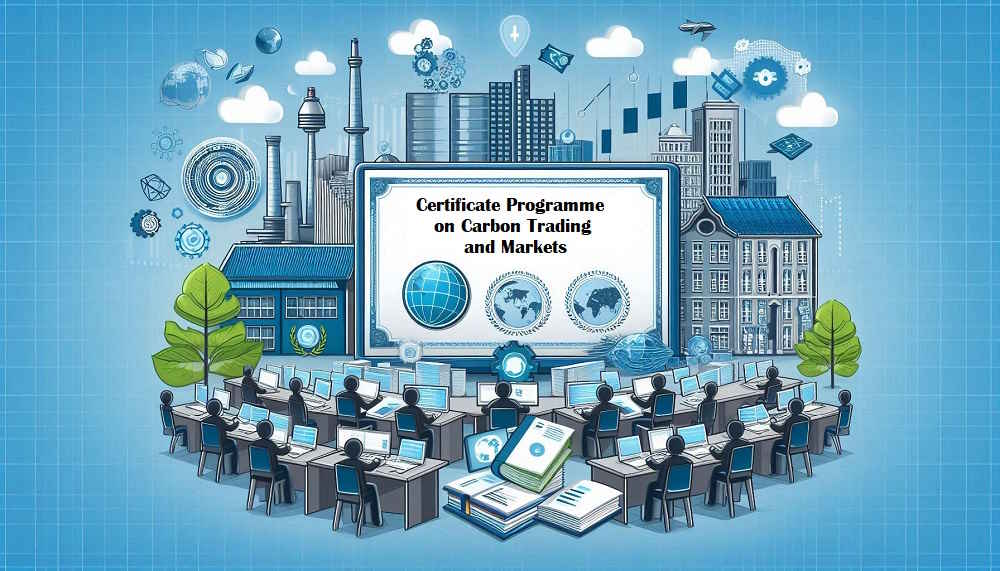
Certificate Programme on Carbon Trading and Markets
This course is designed to cover foundational concepts, practical applications, and advanced strategies related to carbon trading and markets.
Introduction to Carbon Trading and Markets
Duration: 4 Hours
- Overview of Carbon Markets
o Voluntary vs. Compliance Carbon Markets
o Key Stakeholders: Governments, Corporations, NGOs - History and Evolution
o Kyoto Protocol and Paris Agreement
o Development of Emission Trading Systems (ETS) - Types of Carbon Trading
o Cap-and-Trade Systems
o Carbon Offsetting Mechanisms
Greenhouse Gas (GHG) Accounting and Carbon Footprinting
Duration: 6 Hours
- GHG Accounting Basics
o Scope 1, 2, and 3 Emissions
o International Frameworks: GHG Protocol, ISO 14064 - Carbon Footprinting Tools and Methodologies
o Tools: SIMAP, RET Screen, and Climate Action Reserve - Case Study: Corporate GHG Accounting Example
Carbon Pricing Mechanisms
Duration: 6 Hours
- Concept of Carbon Pricing
o Explicit Carbon Pricing: Carbon Taxes and ETS
o Implicit Carbon Pricing: Subsidy Removal and Regulatory Costs - Case Studies
o European Union Emission Trading System (EU ETS)
o India’s Perform, Achieve, and Trade (PAT) Scheme - Economic Implications of Carbon Pricing
Carbon Offset Mechanisms
Duration: 6 Hours
- Voluntary Carbon Offsets
o Standards: Verified Carbon Standard (VCS), Gold Standard
o Offset Project Types: Renewable Energy, Forestry, and Agriculture
• - Compliance Carbon Markets
o Clean Development Mechanism (CDM)
o Joint Implementation (JI) - How to Develop a Carbon Offset Project
Policy, Governance, and Legal Frameworks
Duration: 6 Hours
- Global and Regional Carbon Policies
o Role of Paris Agreement, UNFCCC, and SDGs. - National Carbon Strategies
o India’s PAT Scheme and Renewable Energy Credits. - Legal Frameworks for Trading and Enforcement
Emerging Trends and Technologies in Carbon Markets
Duration: 6 Hours
- Carbon Capture, Utilization, and Storage (CCUS)
- Green Hydrogen and Emerging Energy Solutions
- Blockchain in Carbon Markets
o Transparency in Trading
o Decentralized Carbon Registries - Role of AI and Big Data in Carbon Accounting
Capstone Project and Practical Applications
Duration: 6 Hours
- Capstone Project
o Develop a Carbon Trading Strategy for a Business or Organization
o Conduct Market Analysis and Develop Feasibility Reports - Simulation Exercises
o Carbon Trading Platforms (e.g., ICE, EEX) - Presentation and Evaluation

